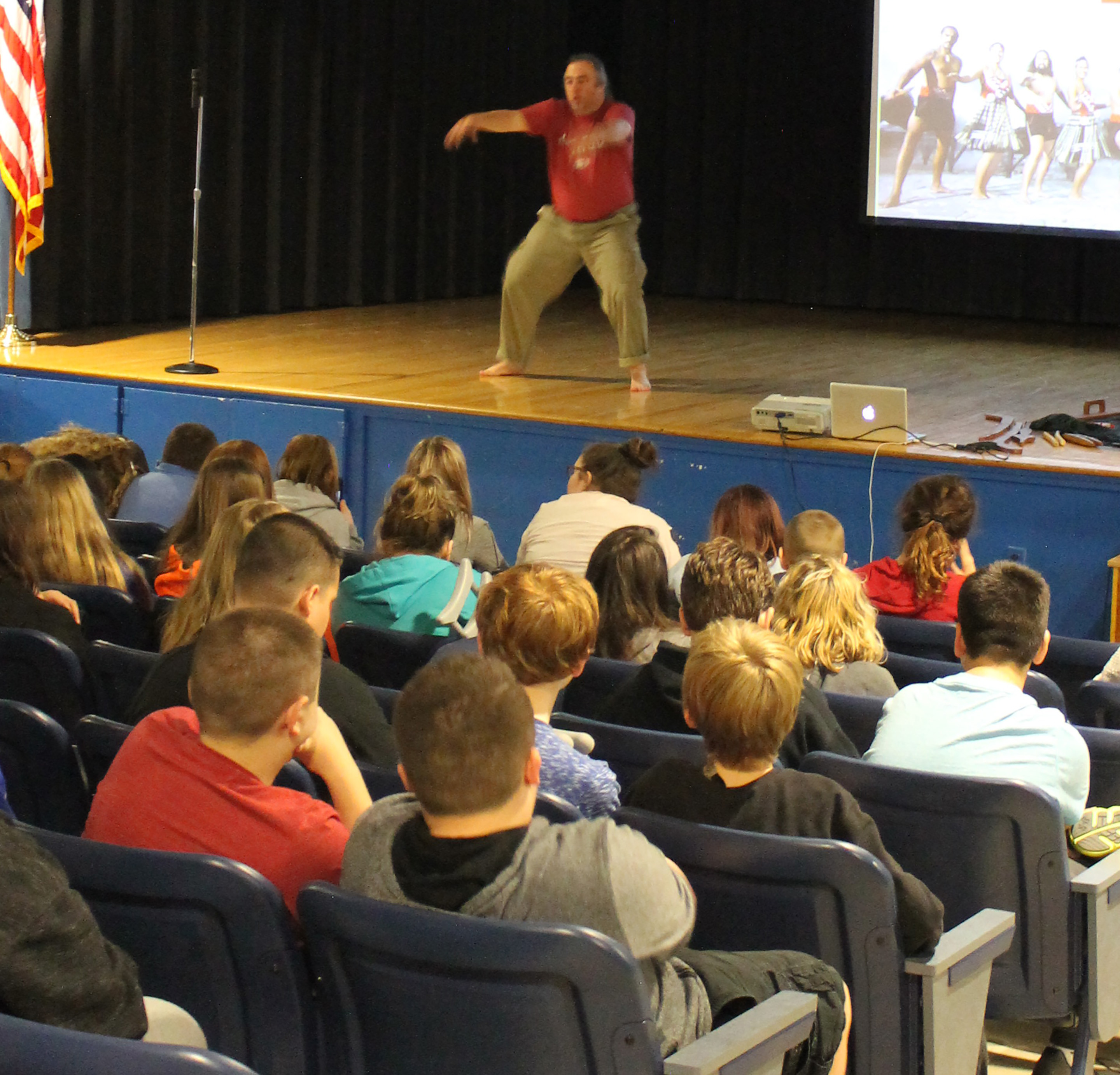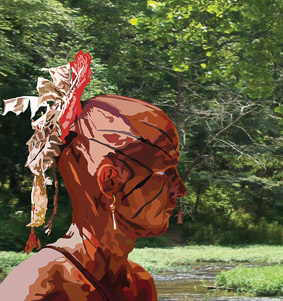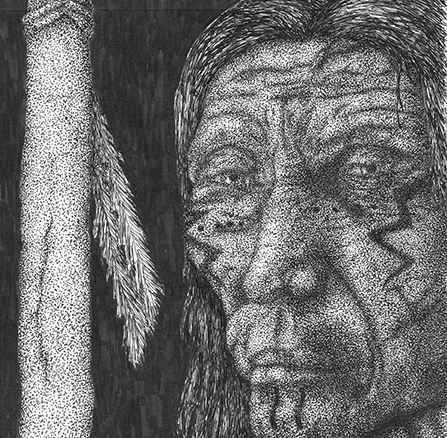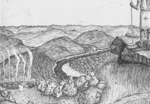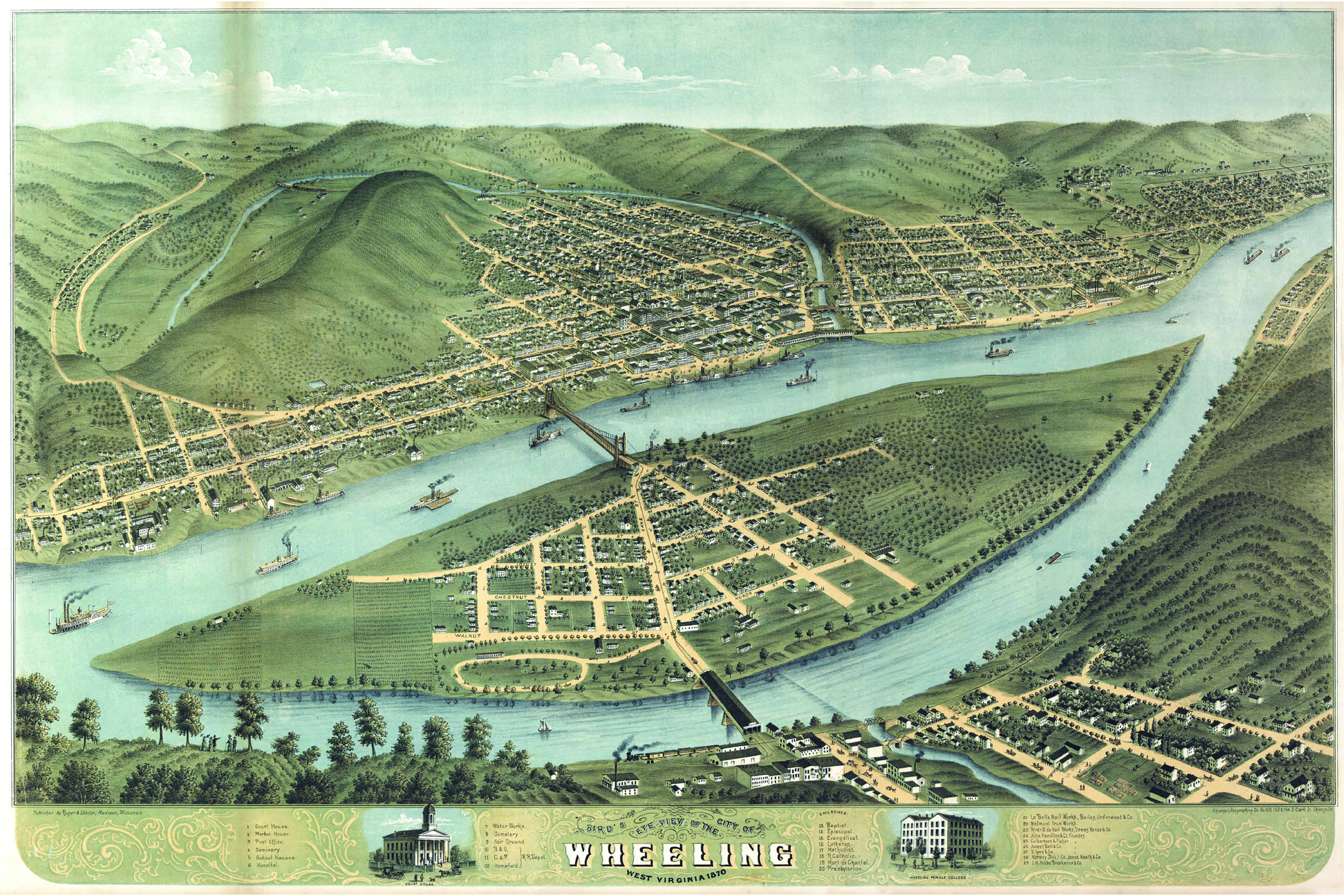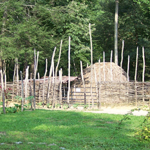Welcome to to Okahok Amai
Ekuni, a young Monyton Indian boy, lived in a small village along the Kanawha River where he became an adult in 1670. He led a storied life. He witnessed some of the first contacts between the English and the Monytons, the original inhabitants of what would later become West Virginia. Ekuni met Robert Fallam and Thomas Batts in 1671 and then Gabriel Arthur in 1674. Follow Ekuni as he navigates through socially and environmentally chaotic native landscapes as Europeans become another unpredictable force. He started a family, became a leader and was quickly forced to make decisions for his people with long-lasting effects. Meanwhile, environmental upheavals were making life in the Appalachian Mountains uncertain. Ekuni’s story fills in many of the holes in the history of this region. His experiences and insights will bring you deep into the living heart of indigenous villages and their politics in the Appalachian Mountains during the 1670s.
Much like Ekuni in the book, I am looking for a home for this novel where it can do the most good. I hope that this novel could supplement or replace other West Virginia studies literature that represents Native peoples as villains, secondary characters, or ignores them altogether. This would not only benefit the eighth graders in WV studies classes but provide a wide audience of readers a much more realistic and nuanced view of the earliest days in the state.
This project began after I finished my dissertation and realized that very few people would read about the change AND continuity of Native Americans in the southern half of West Virginia. So, I set about writing a version of the story in a stronger more engaging way that even public-school students, who study the state’s history, could access and possibly enjoy. The book humanizes indigenous peoples that for most aren’t much more than vague historical ghosts. This book places that reader deep in the indigenous social landscape and showcases the earliest stages of their contact with European outsiders and their reasons for reacting the way that they did.
As a non-Indian author, I am aware of the sensitive implications of my authorship and recognize an ethical, moral, and financial imperative to ensure that this furthers the voices and concerns of Native Americans. To this end, I pledge to donate 10% of the proceeds from this book to the Native American Rights Fund, for additional information on the charity go to: https://www.narf.org/.
Tweets by IsaacEmrick